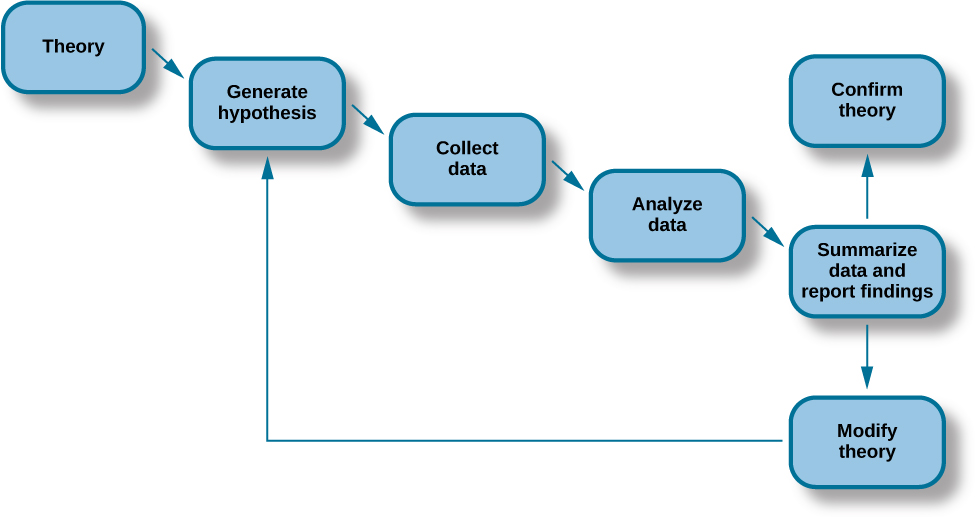Theories and Hypotheses
Two key concepts in the scientific approach are theory and hypothesis.
What Is a Theory?
theory
A theory is a well-developed set of ideas that explains observed phenomena and allows researchers to make predictions about future observations.
-
For example, the theory of evolution by natural selection explains how genetic traits change over generations.
-
In psychology, theories help explain how children develop, how people behave in social situations, and why we experience particular emotions.
Theories are not guesses—they are comprehensive frameworks supported by evidence that guide scientific inquiry and prediction.
hypothesis
A hypothesis is a testable prediction logically derived from a theory or observation. Testing hypotheses allows scientists to refine or modify theories based on evidence.
-
A hypothesis is often phrased as an if–then statement.
-
Example: If I study all night, then I will earn a passing grade on the test.
-
The results of a study will either support or challenge the theory. When results do not align, researchers modify the theory and generate new hypotheses.

Example: The James-Lange Theory of Emotion
To see this process in action, let’s consider a classic psychological theory.

The James-Lange theory of emotion proposes that emotional experience depends on physiological arousal—that is, our body’s physical reactions occur first, and emotions follow.

For example, imagine walking outside and finding a snake on your doorstep. Your heart races, your stomach tightens—and then you feel fear.
From this theory, we might form the hypothesis:
People who are unaware of their physiological arousal will not experience fear.
Researchers tested this idea by studying individuals with severe spinal cord injuries who cannot feel typical bodily changes. Results showed that although these individuals’ emotional experiences were less intense, they still felt emotions such as fear (Chwalisz, Diener, & Gallagher, 1988).
This evidence did not fully support the hypothesis, prompting refinements to the theory.